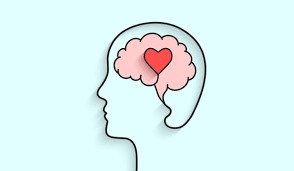Taking Care Of Your Mental Health

Approaching the topic of mental health is never an easy task. You run the risk of crossing the line to “taboo” every time you try to improve yourself. And that is exactly why there is a need for such awareness.
Yes, you know about the numerous mental health issues like depression, anxiety, stress, etc. But what do you know about just “mental health”?
Mental health is exactly like your physical health. The more you nurture and polish it, the better your immunity gets to everyday problems. Or, you can say that you get better equipped at dealing with certain issues.
When all goes down, consulting a therapist or a professional is one of the only ways out. But here, let me share with you some practices that will improve your mental health. Meaning, improve your ability to deal with mental health issues on your own.
Share Your Feelings
Keeping things to yourself is quality indeed, but it starts holding you down when you take it too religiously. The trends of staying home and finishing a T.V show instead of a night out with friends bottles your emotions. You only take in information and can't express your own.
And soon after, the bottled emotions explode at the most uncertain of times.
Having a good social life naturally improves your mental health. The more connected you are to people around you, the safer you feel. But to share your load of emotions, you need a specific few out of the bunch. It can be your family, close friend, or a loved one, that you decompress with at the end of a day.
Social interactions over the internet via social media does not count out entirely. But it is a much better experience to have conversations face to face. Firstly, it improves your bond with the person you are talking to. Secondly, you feel much more comfortable talking to people as your confidence grows.
We are social beings and cannot live a life of loneliness. Expressing your emotions and sharing your feelings prevents the bottling of emotions, so they don't fire back.
Exercise For The Mind And Body
Your mind and body are amusingly interconnected. No wonder you find a lengthy section dedicated to exercise wherever you read about mental health. So, before we get into the mandatory mentions of benefits, let's see how lack of exercise affects your mental health.
Lack of exercise and activity limits the release of stress-busting hormones and endorphins in your brain. It also causes a number of physical problems like body aches, weak immunity, low energy levels, and cramps. Now, you know better than anyone how much a backache can ruin your day!
On the contrary, regular exercise improves your metabolism, immunity, strength, and focus. Not all in one day, though! You have to make a routine because it is not about how much but about how often.
When you work out daily, be it even for 20 minutes, your sleep improves, and you get a regular dose of stress-busting hormones and endorphins. With enough of these, you are well equipped to deal with any situation at hand with ease.
Eat Smartly
Now I do not say to go green and eat healthy because I know that thought never settles in mind. Instead, I ask you to eat smartly, but what is smart eating?
Everybody has a different composition and reacts to changes differently. However, there are general outlines about a diet that affects us all the same. A lot of fats make you put on weight, and protein helps build muscle. Similarly, items like fried food, alcohol, and coffee help build stress. In comparison, food items like fish, nuts, and fruit help you fight stress.
But the trick to the equation is to find the perfect balance for yourself. It's hard to give up taco-Tuesday, so you should learn to compensate in your diet. If you've had a high-calorie meal with a lot of unhealthy fats, then plan your next meals to be rather light and nutritious.
You can also use several supplements to meet your nutritional requirements or lift your mood like Omega-3, Fish oil, Red Bali Kratom, Whey Protein, etc.
Get Enough Quality Sleep
We are well versed in how much an adult needs 7-9 hours of sleep, and so on. But how many times have you considered the quality of sleep? Ever woken up after a ten-hour sleep and still feel tired? That's because it was probably a low-quality sleep, and your body didn't recover fully.
And since your body doesn't recover without quality sleep, you add up to stress and anxiety. But there are a few ways that you can try to improve how you sleep. And I'll share a couple of them with you that I know of.
The first thing you need to do is limit screen-time or at least around your hours of sleep. However, the most effective one that I've found to be is sleeping and waking up at the same time. It's going to be hard for the first few days, but it becomes a cycle.
With enough sleep and that too of good quality, you will be much better charged to deal with any stress that comes your way. Because remember, good mental health is not avoiding stress and anxiety but dealing with it effectively.
839GYLCCC1992



Leave a Reply